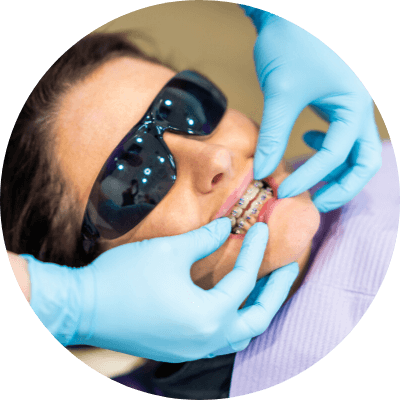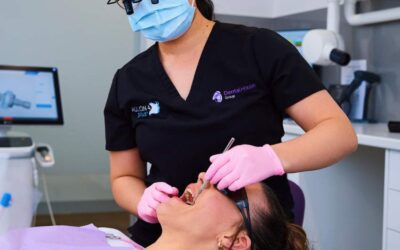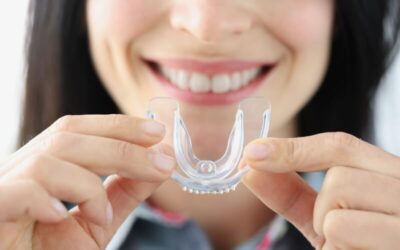5 Ways to Tell If Your Child May Need Orthodontic Treatment
5 Ways to Tell If Your Child May Need Orthodontic Treatment
While some signs your child might need orthodontic treatment are easy to spot, others can be more subtle or ones you didn’t know could potentially be resolved with orthodontic treatment.
You can get orthodontic treatment as an adult, but in many cases, it is easier to undergo treatment at a younger age when your child is still growing, and the complex movements are easier to perform. It may also mean that your orthodontist is able to intercept some misalignments before they have completed growing, making for an easier overall treatment.
We generally recommend that you and your child visit an orthodontist for the first time around age 8, this will allow the orthodontist to assess the growth of their teeth and jaws and let you know of any potential issues early on, as preventative orthodontic treatment can be beneficial for some children.
If you’re wondering whether your child may need orthodontic treatment, here are some signs to look out for:
How to tell if your child might need orthodontic treatment
Their teeth are crooked
Yes, this is an easy one to spot, but if you can see that your child’s teeth are growing at peculiar angles or are overlapping, then it is likely that they will need orthodontic treatment once all their adult teeth have come through.
They have an overbite or an underbite
An overbite or underbite can be another sign that your child will need orthodontic treatment later in life, and this can often be discovered early on as the misaligned jaw will be evident from a young age. While their teeth might grow in fairly straight, it is a good idea to ensure their bite is properly aligned so they don’t develop any pain or additional issues as they grow up.
They have a speech impediment
A lisp or difficulty speaking can occasionally be caused by a misaligned jaw or crooked teeth. Your orthodontist will be able to assess whether it is an issue that can be corrected with orthodontic treatment or if it will require speech therapy.
They snore or have sleep apnoea
While the position we rest in can cause snoring, if your child snores all the time or suffers from sleep apnoea it may be caused by a small or misaligned jaw. Orthodontic treatment is often used to successfully treat many cases of sleep apnoea.
They’ve lost teeth prematurely
If your child loses one or more teeth at a young age, particularly if it is the result of an accident or poor hygiene, then you may find that they may require orthodontic treatment early. Otherwise, the teeth shift as the child grows to fill the gaps causing misalignment. A space maintainer may be required to help hold the gap to avoid more extensive orthodontic treatment down the track.
If you think that your child may require orthodontic treatment and want to be prepared, it is best to make an appointment with an orthodontist. You don’t require a referral from a dentist to make your first appointment.
Click here to read the original article.
DISCLAIMER:
The content has been made available for informational and educational purposes only. Melton Dental House does not make any representation or warranties with respect to the accuracy, applicability, fitness, or completeness of the content.
The content is not intended to be a substitute for professional personal diagnosis or treatment. Always seek the advice of your dentist or another qualified health provider with any questions you may have regarding a dental or medical condition. Never disregard professional advice or delay seeking it because of something you have read or seen on the Site.
Services we mentioned:
More Wellness Infographics
Red, Red Wine: Is It Beneficial For Oral Health?
Is red, red wine beneficial for our oral health? Or does it just feel good at the time & if you overdo it you feel like cr*p the next morning…
Detecting Oral Cancer Is Given The Brush
In 2020, Oral Cancer accounted for almost 380,000 cases, and 180,000 deaths globally. It’s on the increase with diagnosis incidents…
Could The Surge In Pneumonia In Children Be Related To Their Teeth Brushing?
Kids and teenagers are not self-maintaining, and nor is their oral health. Teeth brushing: spend time with it frequently…
What Is Dental Sleep Medicine? It’s Not Sleep Dentistry
Dental Sleep Medicine is the intersection of dentistry with issues affecting sleep. Snoring, sleep apnoea, & related breathing disorders…















